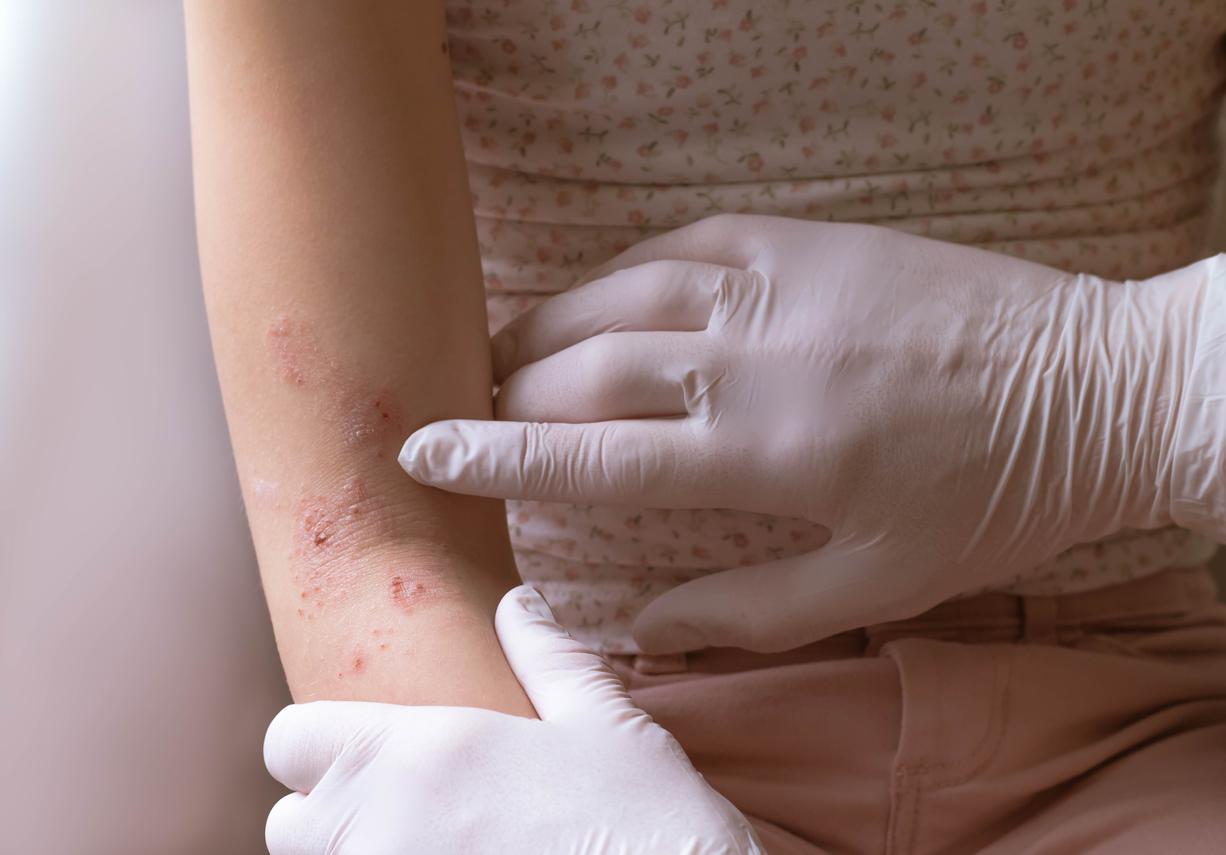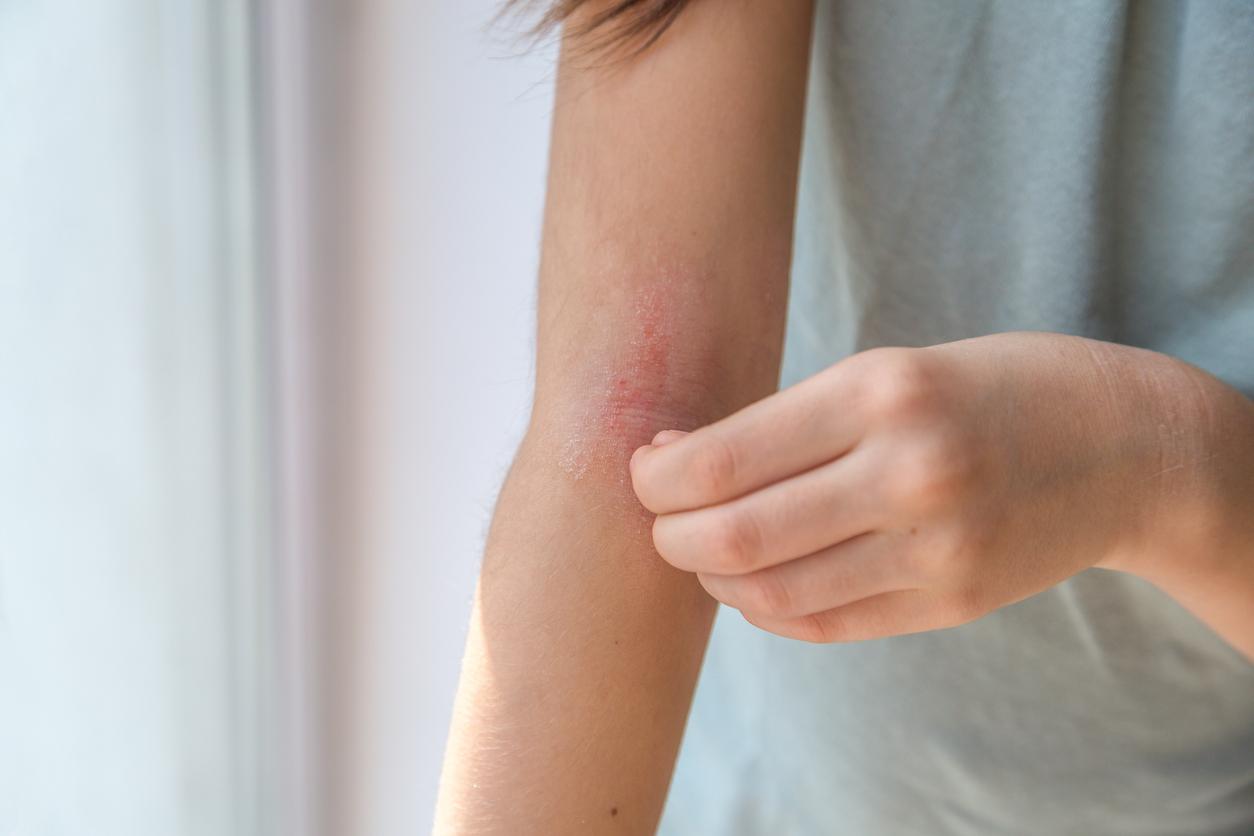Foods most often involved
You must identify the allergenic element and modify your menus accordingly.
Among the foods most frequently responsible, here are a few examples: cow’s milk, celery, eggs, cheeses, fish and shellfish, strawberries, chocolate, peaches, citrus fruits, tomatoes, peanuts, and all foods containing peanuts.
Advice for pregnant women
If there is a family history, an avoidance diet may be advised by the doctor or allergist. In this case, you may need to avoid major food allergens.
Tips for babies
When your baby is born, try to breastfeed as long as possible, for at least 6 months. In families at high risk of atopy, prolonged breastfeeding has been shown to be a very effective preventive measure against eczema and allergies.
Then switch to hypoallergenic milk.
Delay food diversification as much as possible: avoid eggs and fish until the age of 12 months, oilseeds (peanuts, walnuts, hazelnuts, almonds) until the age of 3 and introduce foods one at a time. a.
Vitamins and trace elements to favor
The role of vitamins
– Vitamin A preserves elasticity, promotes healing, helps the skin to defend itself.
– Group B vitamins play a major role in skin health and in the fight against seborrhea.
– Vitamin E accelerates healing.
You can help yourself with foods rich in these vitamins or resort to supplementation, the specialties are numerous.
The role of trace elements
– Copper with anti-infectious properties is one of dermatology specialties.
– Zinc and selenium, like vitamins E and C, and beta-carotene, have antioxidant properties. They participate in the fight against eczema by protecting the cell membrane thanks to their anti-free radical action.
Recommended daily amounts for adults: 55 to 70µg (depending on sex) of selenium and 15mg of zinc.
Where are they found?
Selenium: mainly in all seafood products, primarily crustaceans and molluscs. Next come the liver, kidneys, then meats, vegetables and dried fruits.
Zinc: in dairy products and eggs, starches and seafood
They are also found in tablets, capsules, capsules… to be taken for 2 months. In specialty stores or pharmacies.
















